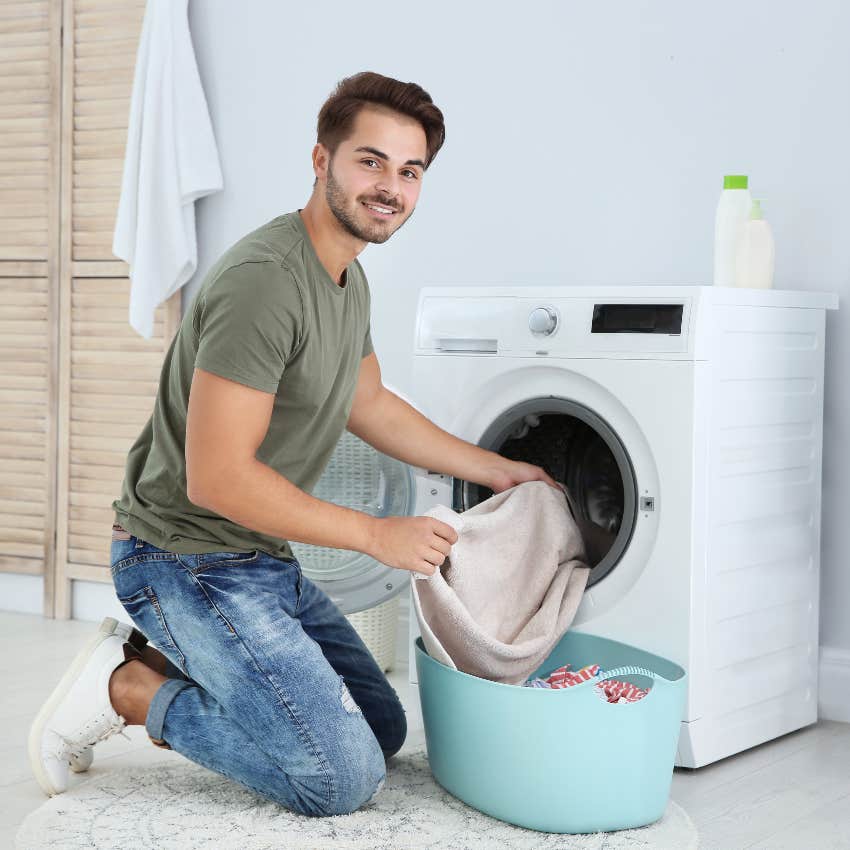Parent Coach Explains The House Rules Your 20-Something Who Lives At Home Should & Should Not Have To Follow
Parents must find a balance with their adult children so as to not create any unnecessary conflicts and tension.
 fizkes | Shutterstock
fizkes | Shutterstock It's becoming increasingly common for 20-somethings to live at home with their parents, and with this, comes new challenges.
These young adults must figure out how to navigate adulthood and maintain their freedom while respecting the rules their parents set within their homes. Parents must figure out how to set rules while simultaneously respecting their children's independence. It's a delicate balance.
Parent coach and author Kim Muench shared some house rules that parents should feel free to set with their adult children and others that may not be as effective as some parents expect.
A parent coach explained the house rules your 20-something who still lives at home should and should not have to follow.
"Rules change when our kids hit their 20s," she wrote in the caption of her video. "You, the parent, are in the driver's seat when it comes to creating a more mature relationship with your emerging adult."
For some parents, it can be challenging to go from parenting a minor to parenting an adult who is entitled to have full autonomy over their decisions. Just because their adult children live at home doesn't mean they've suddenly regressed back into minors and need to be disciplined and treated as such.
"Your 20-year-old daughter, who is living at home, does not need a curfew," Muench insisted first. "She does need to communicate whether or not she's gonna be home that night."
Curfews are for teenagers who have school the next morning and need structure and boundaries. Curfews are not for adults who most likely have full-time jobs and other responsibilities.
"Your 24-year-old son needs to do his own laundry," she continued. "He also needs to move it from the washer and dryer and back to his room in a timely manner."
 New Africa / Shutterstock
New Africa / Shutterstock
"Your college kid does not need to be tracked unless it's part of an agreement everyone in the family has for safety purposes," she added.
Many parents feel more than comfortable tracking their kids' locations when they're away at college and back home. However, this can quickly become stifling for that child and even damage their relationship with their parents if they don't feel taken seriously as an adult.
Lastly, Muench insisted that parents should not be counting the bottles of beer and alcohol in the fridge.
"Your son does need to buy his own alcohol and drink responsibly," she reasoned. "There are certain behaviors, certain rules, that you need to get rid of once your son or daughter hits their 20s."
Parents and their adult children should have an open and ongoing conversation about their expectations.
On the flip side, there are certain responsibilities, particularly regarding communication and finances, that a 20-something should take on themselves — even if they live in their childhood home.
Muench insisted that parents should sit down with their children and start a healthy dialogue about expectations and boundaries. Without open communication, issues often arise.
"Our 20-somethings don't always know what they need to do or the steps to take," she said. "If you're not approachable, you're just gonna continue to clash."
Muench added that it's up to parents to form and maintain a mature relationship with their young adult children, especially if they're living under the same roof.
Almost half of young adults are still living at home with their parents.
According to a Pew Research Center analysis, more than half of U.S. adults under age 25 live with their parents. The report cites increased student loan debt and higher costs of living as reasons why.
It's becoming less likely that young adults, especially those among Gen Z, can make enough money to provide for themselves.
In a similar report from the Pew Research Center, a majority of young adults said that they remain financially dependent on their parents to some extent, such as receiving help paying for rent or mobile phone bills. Only about 45% of 18- to 34-year-olds described themselves as completely financially independent from their parents.
There's nothing wrong with living at home. In fact, it's far more common in other cultures. If a young adult's parents are willing and able to help, then it's perfectly reasonable to accept their support. Just remember, balance is key.
Nia Tipton is a Chicago-based entertainment, news, and lifestyle writer whose work delves into modern-day issues and experiences.

